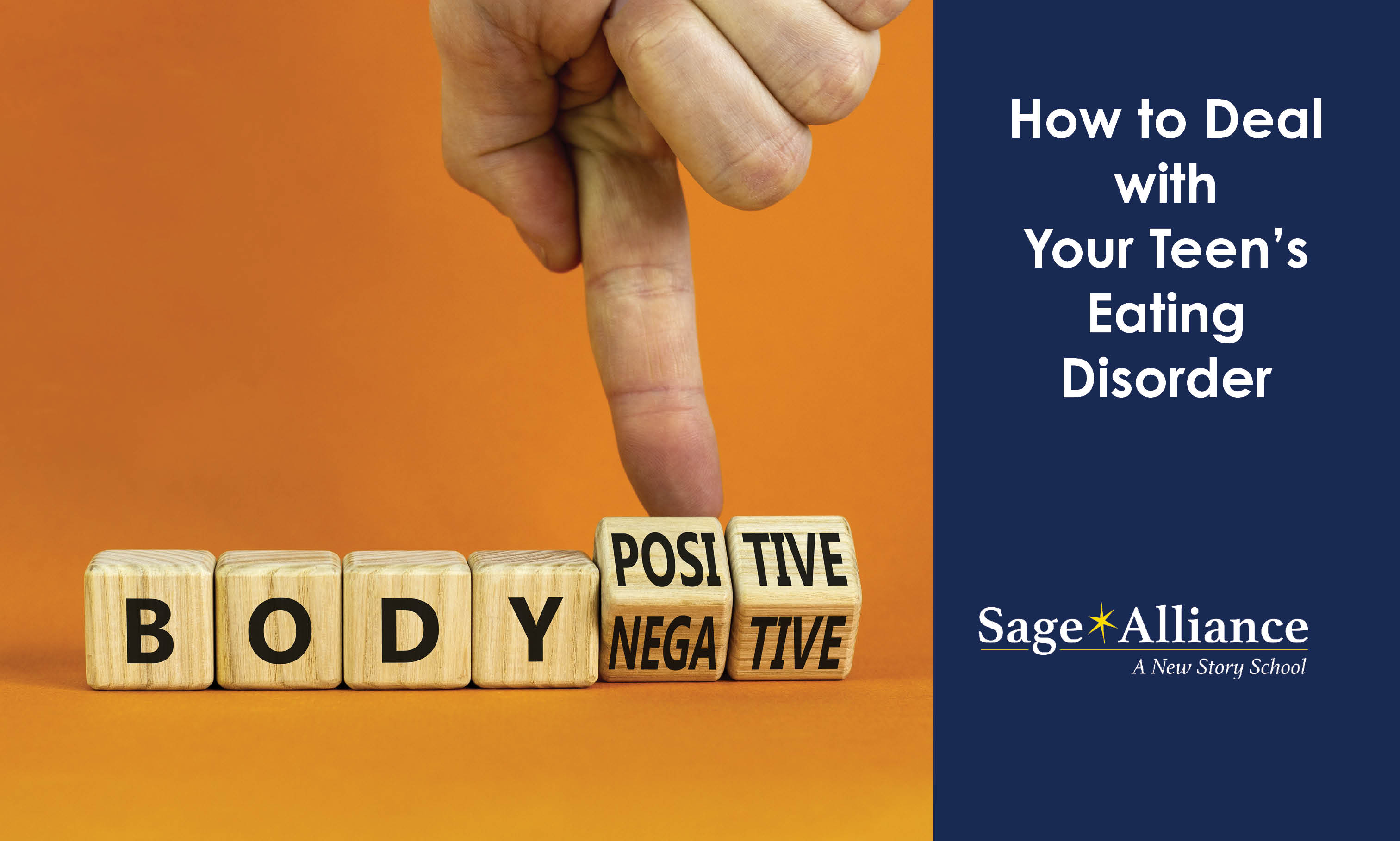How to Deal with Your Teen’s Eating Disorder
Posted: April 04, 2016 | Written By: Holly Ference | Category: Emotional Health

In this blog, Sage Day School provides parents with information about teen eating disorders and body image problems. We will examine in greater detail how your teen can develop an eating disorder, misconceptions parents have about eating disorders, and types of eating disorders.
How Teens Develop Eating Disorders
Your teen is constantly bombarded with information through their social media networks about acceptable body images. Many teens can start to feel overwhelmed, anxious, and stressed when they do not fit the image their peers have deemed to be “normal.” As such, it is not uncommon for some teenagers to develop eating disorders in their attempt to compensate for their feelings of inadequacy about their own body image.
Teens who develop eating disorders normally have a distorted view of their own self and their body image. Further, seeing pictures on Snapchat and other social media sites of their friends in their swimsuits or working out can place added pressure on your teen and further fuel his or her eating disorder.
As parents, it is important to first understand how eating disorders can affect your teen, and potential signs/symptoms to recognize. Once you realize your teen has a potential eating disorder, the next step is to seek professional help either by enrolling them in therapeutic schools or private counselling with a therapist who specializes in teenager and young adult eating disorders—or both.
Misconceptions Parents Have About Eating Disorders
Many parents have misconceptions about eating disorders and do not believe their teen could have a problem. Some of the more common ones are:
- Only teen girls develop eating disorders. False. Eating disorders can affect both boys and girls. In many cases, the number of teens with eating disorders is equally proportionate between males and females. The only exception is anorexia, where only about a quarter of the cases are boys.
- Only underweight teens have eating disorders. False. Teens of all body shapes and sizes can develop eating disorders, including average and overweight teens.
- My teen will outgrow their eating disorder; it is only a phase. False. In many cases, eating disorders will continue to be a problem for your teen as they mature into young adults. Ignoring the problem and hoping it goes away is never a solution.
- Teens with eating disorders are not really in any danger. False. Eating disorders can increase risks for other health issues and developmental problems, including kidney damage, bone loss, stunted growth, infertility, and heart disease. Further, your teen could cause irreversible damage to their body.
- Only privileged teens get eating disorders. False. Eating disorders do not discriminate based upon social-economic factors. Teens from all backgrounds can develop eating disorders, because they are using food to address feelings related to guilt, shame, anxiety, and stress, although anorexia is the exception, and it is more common in teens from higher social-economic backgrounds and in athletic teens.
Now that you are more aware of the misconceptions parents can have about eating disorders, we will look at disorders that could potentially affect your teen.
Types of Eating/Body Image Disorders
The most common eating and body image disorders are:
- Binge Eating – Teens with this disorder consume excess amounts of food to compensate for their feelings of inadequacy. They tend to have a lack of control and will continue to eat even when full. Some teens will hide the fact they are binge eating by eating alone and hiding food in their rooms.
- Bulimia – Teens with this disorder not only binge eat, but also purge once feelings of guilt and shame set in. Purging is accomplished by self-induced vomiting, fasting, taking laxatives, diet pills, or spending an excessive amount of time exercising.
- Anorexia – Teens with anorexia tend to not eat food, because they feel they are fat, even though they are not. In cases where they do eat, portions tend to be smaller, and they will resort to purging methods out of guilt from eating.
- Body Dysmorphic Disorder – Teens with this disorder are obsessive about their body image, and spend a great deal of time finding fault with their body over perceived imperfections.
Sources:
http://www.helpguide.org/articles/eating-disorders/helping-someone-with-an-eating-disorder.htm
http://www.med.umich.edu/yourchild/topics/eatdis.htm
Want to be notified of new articles and resources from Sage Alliance? Click here to submit your email and opt into our newsletter.








